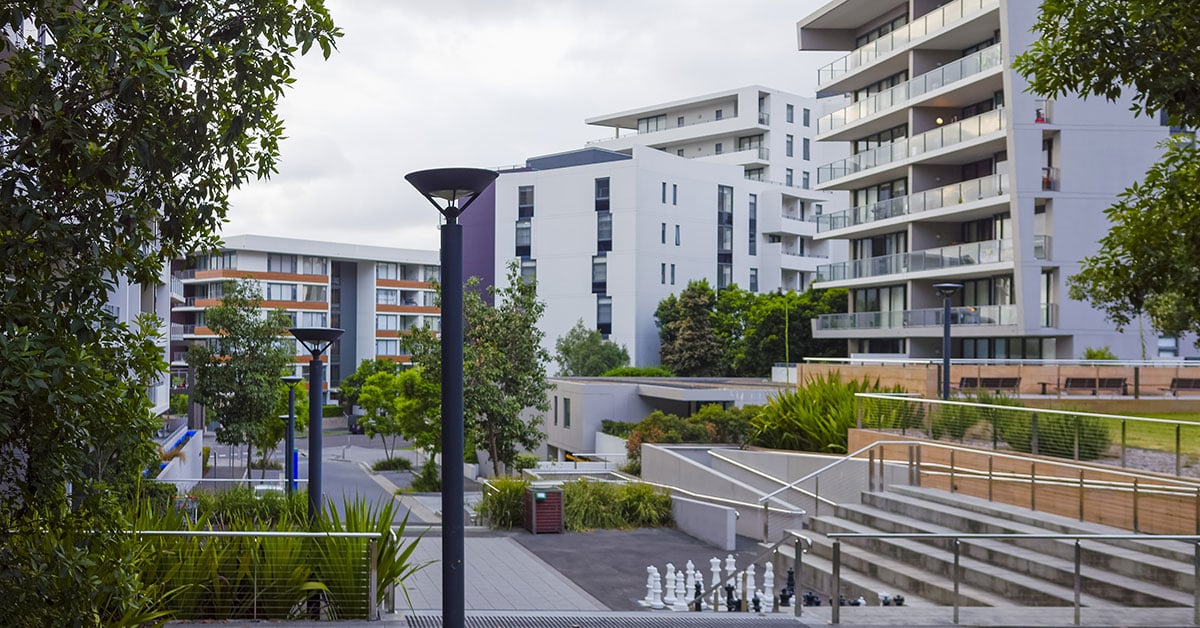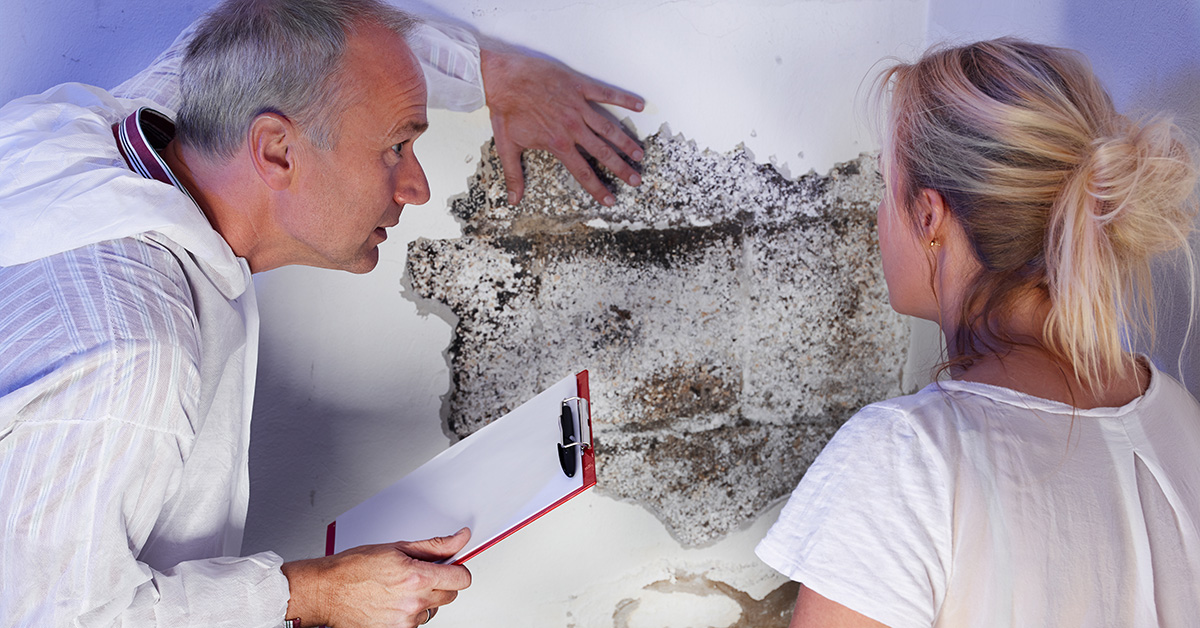The Ultimate Guide to Strata Fees

Living in a strata property like an apartment or townhouse can offer occupants plenty of advantages compared to traditional housing. Strata properties are often more affordable and provide access to shared amenities like gardens, pools, and building maintenance without having to manage or pay for everything on your own. These conveniences are instead covered by strata fees, also known as body corporate fees or strata levies.
Strata fees are mandatory contributions paid by property owners within complexes such as units, villas, townhouses or duplexes, and will likely vary from building to building. A low levy may seem attractive to prospective buyers, however, it may not actually be enough to cover all future repairs.
It’s therefore essential for prospective buyers to understand exactly what strata fees cover and how they’re calculated.
With more Australians tipped to be living in a building with a strata scheme in the future, LJ Hooker have compiled a comprehensive guide to understanding strata fees, answering questions like:
- What are strata fees?
- Who manages the strata fees or body corporate fees?
- Who owns what in an apartment building?
- How much are strata fees?
- What do strata fees cover?
- Do my strata fees cover my utility bills?
- Do strata fees include Council rates?
- Are strata fees tax-deductible?
- Does everyone pay the same in a strata scheme?
- Are all strata fees the same?
- How are strata fees calculated?
- What happens if I can’t pay strata levies?
- Can you negotiate strata fees?
- Do I need building insurance if I live in a strata building?
- Why are strata fees worth it?
What are strata fees?
All owners contribute financially to the ongoing care and maintenance of their building complex. These are commonly paid quarterly into a fund managed by the body corporate.
There are three types of strata fees that you can expect to pay:
-
Administration fund levies:
These fees cover the day-to-day management and expenses of the building such as cleaning, gardening, utilities such as electricity for common areas and building insurance premiums.
-
Capital works levies:
(previously known as a sinking fund) - This pays for more costly repairs and maintenance such as roof restoration, replacing fittings and fixtures, painting, updating outdoor furniture and any other major works.
-
Special levies:
This is to cover an unexpected expense should there not be enough funds collected for the capital work levy.
Who manages the strata fees or body corporate fees?
An Owners' Corporation, also known as a Body Corporate, is made up of all the property owners. Entry is automatic when you buy into the complex. And while it may seem like a chore attending the Annual General Meeting, it is important to be involved and have a say in the future of your building.
Body Corporates must manage and administer the common property, raise fees from owners to meet financial obligations, prepare financial records and establish a grievance procedure.
To do this, they elect a Strata Committee usually consisting of the chairperson, secretary and treasurer. They may also opt to employ a strata manager who works alongside the committee. This paid professional coordinates the day-to-day expenditure, regular maintenance, as well as a future capital works fund.
Strata managers make sure the building is properly insured, owners are up to date with their levies and can help to solve disputes. They also have a broad knowledge of strata rules, regulations and compliance.
Who owns what in an apartment building?
The body corporate own the 'common areas' of a building such as lobby, lifts, hallways, car park and swimming pools. This means it is the shared responsibility of all the owners and means everyone contributes to the upkeep of such areas.
The term 'lot owner' refers to the individual dwelling. The owner is responsible for the airspace and everything within the boundary of their apartment, townhouse or villa.
How much are strata fees?
Strata or body corporate fees can vary quite a bit and for good reason. Several factors influence how much each owner pays. For example, Building A might have different fees from Building B depending on the number of shared amenities and facilities. Similarly, one owner may pay more than another in the same building if their unit is larger or has a higher unit entitlement. Let’s break down the key factors that affect strata levies below.
What do strata fees cover?
Living in a strata scheme can be a relief as you don’t have to stress about most of the maintenance and repairs normally paid in a standalone home. Here’s a breakdown of what your strata levies cover (some of which we’ve touched on above):
- Common area maintenance (shared spaces like lobbies, hallways, elevators and stairwells.
- Gardening and Landscaping
- Building Insurance (except contents of the building)
- Utilities for common areas
- Body Corporate Management fees
- Security and Access Systems
- Pest Control
- Other Amenities Upkeep
Do my strata fees cover my utility bills?
If the property is 'separately metered', then the owner or tenant will be responsible for their electricity, gas and water bill.
Do strata fees include Council rates?
Strata levies are based on unit entitlement and doesn't include Council rates. So don't forget to factor these into your quarterly budget.
Are strata fees tax-deductible?
Investors can claim contributions made into the strata administrative or capital work funds as a tax deduction. Like any claim, documentation of expenses is essential. However, Costs deemed to be a 'special purpose' may not be deductible. Be sure to discuss this with your tax advisor.
Does everyone pay the same in a strata scheme?
The size of a property determines contributions to a strata scheme. Larger apartments attract a higher strata fee. It is only paid by the owner, not if you are renting.
The term 'unit entitlement' refers to the amount assigned to a property based on its value in the strata scheme at registration. Fees may also be higher for properties with balconies, courtyards, storage cages and parking spaces.
Are all strata fees the same?
Every building has a different strata fee, and this cost can depend on its age, location and even your State.
An older complex may have a higher levy to cover ongoing repairs. A newer development can also attract a high strata fee if it has amenities such as a gym, swimming pool or lifts to maintain.
How much is paid is also dependent on how well funds are managed. So, when inspecting an apartment or townhouse, always take the time to check out the common areas too. If the building shows signs of neglect, then there could be some surprise costs ahead.
Always review the buildings' financial records to check that there are no legal disputes between neighbours or upcoming major repairs. A strata plan is usually included as part of the contract of sale. It can also be obtained by your conveyancer or solicitor.
How are strata fees calculated?
As a guide, expect to pay between 0.3 per cent to 1.2 per cent of a property's value in strata fees. Those with more amenities will be in the upper end of this range.
Always do your homework on strata fees by looking at what is being charged by comparable buildings. Low levies can correlate with poor maintenance. This can not only be expensive to fix but can impact the long-term value of your property.
What happens if I can't pay?
Falling behind on your strata fees can lead to more than just a few warning letters. Typically, you'll first receive a formal notice, followed by penalties set by the strata committee.
Generally, properties even charge interest at a rate of 10% on overdue payments, often calculated annually, so unpaid levies can quickly add up. In more serious cases, continued non-payment could put your ownership at risk. That said, consequences can vary depending on the property and its specific by-laws.
It is important to speak to someone from the strata committee or your strata manager if you are experiencing financial difficulties. They may be able to set up a payment plan.
Legal action can be taken against unpaid strata fees and interests charged. It may be tempting to withhold a levy payment in protest if you are unhappy with the body corporate, however, this means that you lose the right to vote at meetings and have your say.
Can you negotiate strata fees?
While strata fees are generally set by the body corporate, there may be situations where negotiation is possible, particularly when special circumstances apply. This is why it is important to be actively present in strata meetings so you can understand what the fees cover and raise any concerns or proposed such adjustments.
In some cases, speaking directly with the body corporate manager can help, especially if you are seeking specific changes to your contributions. For more personalised matters, it may also be necessary to speak with the property owner to explore best possible arrangements.
Do I need building insurance if I live in a strata building?
It is a legal requirement that the Owners Corporation will insure the building and common areas and this is included in the strata fees. Always read the fine print of exactly what is and isn't covered by the insurer. Remember an owner still needs to pay for home contents insurance to cover the interior of their property.
Why are strata fees worth it?
- Low-Maintenance Living
Your strata fees cover the upkeep of shared spaces like gardens, bins, and hallways, so you can make the most of your time without the usual household worries - Cost-effective Ownership
Strata properties are typically more affordable than standalone homes in the same suburb. This makes them a smart entry point into desirable areas. - Access to Premium Amenities
One of the perks you can enjoy in a strata property is access to facilities like pools, gyms, outdoor cinemas or even wine rooms. In a regular home, these might be luxuries that stretch your budget, but in a strata setup, you get to enjoy them for just a fraction of the cost.
In summary, there are plenty of benefits to paying strata fees and choosing strata living. With all the convenience and perks, plus lower cost compared to maintaining a standalone property, the value is clear. You get and enjoy more while managing less, both in effort and expense.
Contact us today and we’d be glad to help you with your strata living!
DISCLAIMER - The information provided is for guidance and informational purposes only and does not replace independent business, legal and financial advice which we strongly recommend. Whilst the information is considered true and correct at the date of publication, changes in circumstances after the time of publication may impact the accuracy of the information provided. LJ Hooker will not accept responsibility or liability for any reliance on the blog information, including but not limited to, the accuracy, currency or completeness of any information or links.
Share


